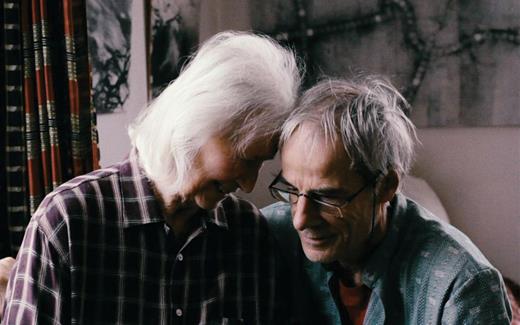“Not Eclipsed”

When I first heard about this feature length documentary, I was prepared to see the same kind of story that has been filmed again and again—the usual angst that is so often presented in documentaries about this painful journey of families dealing with the loss of cognition and then recognition. But after just a few minutes into this family’s story, I sensed that this film would be different. Perhaps it is because the locale is in a foreign country (Germany). Perhaps it is because the story includes more than just a focus on the disease. Perhaps it is because the film’s characters have engaging life histories. Perhaps it is because the film is so relaxed in its filmic invitation for the viewer to step into this family’s life and their intimate reflections and to stay there without any sense of discomfort at what we are allowed to see and hear. It is, I think, all of these that make this film so easy and engaging to watch.
The film opens with scenes of family gatherings and the voice-over narration of the filmmaker, David Sieveking, telling us that his mother is gradually losing her memory. David adds that he has not seen much of his parents over the last few years, but that he will now be visiting them for awhile in order to provide some help. When he arrives, his mother, Gretel, does not, at first, seem to recognize or easily place him. After a few days, David’s father, Malte, takes the opportunity to get some respite while David is there and leaves for a few days vacation in Switzerland. David now experiences the full responsibility of living with his mother.
